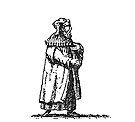 |
Interdisziplinäres Forum »Jüdische Geschichte und Kultur in der Frühen Neuzeit und im Übergang zur Moderne« | ||
|
|||
|
Tagung 2002 |
Christian Hebrew Scholarship in Early Modern Europe (1500–1650)Stephen BURNETT, Nebraska (z. Zt. Berlin) The Study of Christian Hebraism is an emerging field of research within Jewish studies, which will shed new light upon how the perception of Jews and Judaism held by European elites began to change during the early modern period. (See the Christian Hebraism webesite: www.library.upenn.edu/cjs/exhibit/index.html). Christian Hebraists worked to make available to non-Hebraists information, concepts, insights and entire texts from the world of Jewish scholarship. This process of transmission was supported by four mutually reinforcing developments within early modern Europe: the emergence of new rationales for learning Hebrew, the founding of chairs (Lehrstuehle) of Hebrew language in many European universities, the explosive growth of an Hebrew printing industry producing for the Christian market, and the willingness of Jewish scholars, printers, and booksellers to support the growing Christian interest in Hebraica. Most of these developments took place within the context of confessional conflicts between Lutheran and Reformed Protestants on one side, and tridentine Catholicism on the other. To measure these developments i have created an exhaustive database of Hebrew books (1608 imprints) which provides the names of authors/editors/translators involved in the transmission of Hebrew learning, places of publication (Catholic or Protestant), printers/publishers, and the year produced, all of which I will analyze further. To trace the reception of this new knowledge through book purchase, I have used the literature on the history of universities to identify professors of Hebrew (562), and also the published and unpublished catalogues of university libraries and individual scholars. I am now working to clarify the participation of Jews (and their motives for participation) in this phenomenon, especially the relations of major authors, translators and editors with Jewish tutors, informants, and booksellers. |